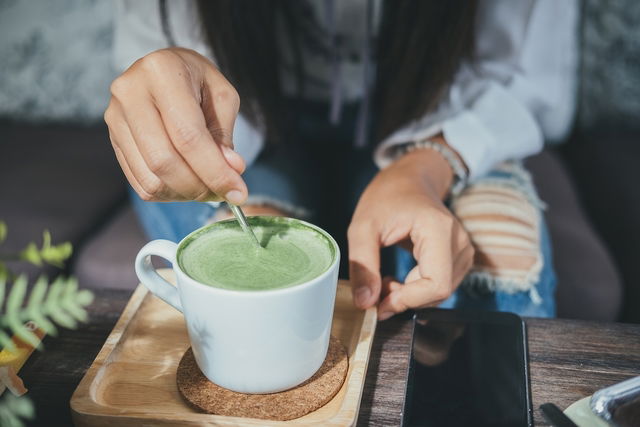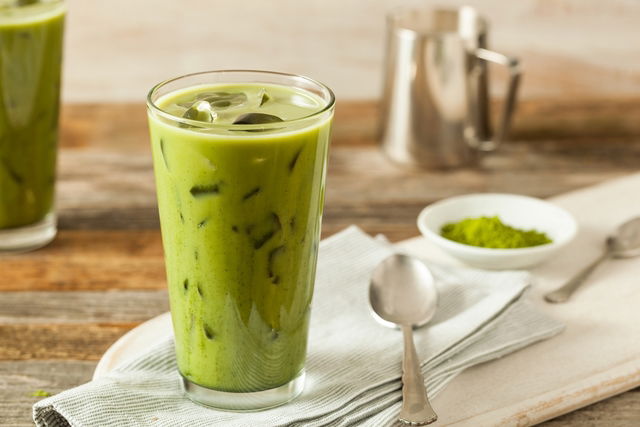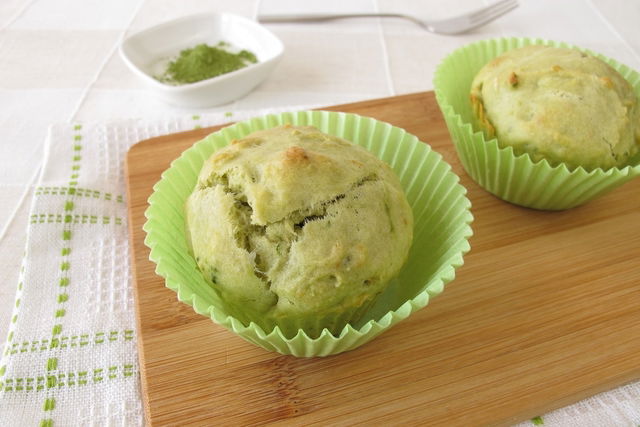Matcha tea is a beverage made from young green tea leaves (Camellia sinensis), which are more protected from sun exposure. These tea leaves are ground into a fine powder which is then used to make tea or added to other recipes. Because of this process, matcha tea contains a higher concentration of caffeine, theanine, and chlorophyll than regular green tea.
Some studies show that matcha tea consumption is associated with improved brain function and increased weight loss, and it may also have a protective effect on the liver.
You can find matcha tea in the form of a powder or in tea bags, which can be bought at grocery stores, drug stores, natural health product retailers and online retailers.
Health benefits
1. Promote weight loss
Matcha tea can help to promote weight loss because it is rich in caffeine. This substance has thermogenic action, which stimulates metabolism and leads to more fat burning.
The caffeine present in matcha tea can also help to control hunger temporarily. This can lead to reduced calorie intake and therefore weight loss.
It is important to remember that, to achieve weight loss, matcha should be incorporated in a healthy, active lifestyle.
2. Strengthen the immune system
Because it is rich in epigallocatechin, which are bioactive compounds with immunomodulating and anti-inflammatory action, matcha tea strengthens the immune system and can help to combat bacteria, viruses and fungi.
3. Improve mood
Matcha tea helps to improve mood and memory because it is rich in theanine, an aminoacid that promotes relaxation and reduces stress.
In addition, this tea also contains caffeine, which is a substance that stimulates the release of serotonin, a neurotransmitter that regulates anxiety and promotes happiness.
4. Maintain liver health
Matcha tea helps to maintain liver health because it contains antioxidants that regulate hepatic enzymes and help to protect liver cells from free radical damage, medications and other toxins.
5. Improve concentration and focus
Because it has high levels of caffeine, matcha tea increases the release of adrenaline, noradrenaline, dopamine and serotonin in the body. These neurotransmitters decrease drowsiness and increase concentration and alertness.
6. Prevent early aging
Matcha tea is rich in antioxidants like catechins, caffeine and theanine, which protect healthy skin cells from damage caused by free radicals. This can help to prevent wrinkles, flaccidity and early aging.
7. Prevent cardiac disease
Because of its high antioxidant content, matcha tea inhibits fat cell oxidation and promotes healthy LDL levels in the blood. This can contribute to a reduced risk for cardiovascular disease, like high blood pressure, atherosclerosis and heart attack.
8. Reduce the risk for cancer
Matcha tea may reduce the risk for cancer because it is rich in antioxidants (like flavonoids and caffeine) which impede damage to DNA. This can prevent the formation and multiplication of cancerous cells.
Other benefits of matcha tea are still being studied, however, many tests have have demonstrated that this plant contains several benefits for the body, and that it should be included as part of an every day balanced diet.
Recommended dose
Daily recommended consumption is of 2 to 3 tablespoons of matcha per day, which is the equivalent to 2 to 3 cups of tea. Matcha powder can also be used as an ingredient in cakes, bread, and juices.
How to make matcha tea
When prepared as tea, matcha has a foamy appearance and a slightly bitter taste.
Ingredients
- 1 teaspoon of Matcha powder;
- ½ cup water.
Preparation Method
Heat the water until boiling, remove from heat and let it cool until your desired drinking temperature. Pour the water into a cup with the matcha powder and mix very well until the powder dissolves completely.
In order to achieve a lighter taste, you can add more water to the mixture. It is also possible to add some cinnamon or grated ginger into the tea
Other matcha recipes
Matcha can be consumed in many ways. Here are some ways you can add matcha powder to other recipes:
1. Matcha latte

Ingredients:
- 250 ml de vegetable milk (coconut, almond or oat)
- 1 teaspoon of matcha powder
- 1 teaspoon of honey
How to prepare:
Heat the milk in a pot until warm. Add the powder to a cup, then pour the milk over and mix well. Add honey, stir and serve.
2. Tropical matcha juice

Ingredients
- ½ cup orange juice;
- 1½ cup soy milk or almond milk;
- 1 teaspoon matcha powder.
How to prepare
Mix all the ingredients in a blender and serve cold, preferably without sweetening the mixture.
Matcha muffins

Ingredients (12 units)
- 2 cups of oat flour or almond flour;
- 4 tablespoons of baking powder;
- 2 teaspoons of salt;
- 2 teaspoons of matcha powder;
- ½ cup of honey;
- 1 ½ cup of coconut milk or almond milk;
- ½ cup coconut oil.
Preparation method
Mix the dry ingredients (oat flour, the baking powder, the salt and matcha powder ) in a bowl. In a separate bowl, mix the wet ingredients (honey, milk, and coconut oil). Slowly mix the dry ingredients into the wet ingredients until well-combined. Pour the batter into separate muffin baking tin and bake for 30 minutes at 350ºF (180ºC).
